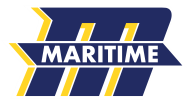Marshfield start-up leverages technology and service to beat the competition
By Douglas Karlson
We order books online, as well as clothes, groceries, and almost anything else you can think of. But when it comes to restaurant takeout, most people still rely on the telephone.
That didn’t make sense to Joe Capone, founder of Marshfield-based start-up, FoodSquire, who’s leveraging technology and local service to prove that ordering restaurant meals online is easy, efficient, and less prone to errors.
Capone came up with the idea for FoodSquire two-and-a-half years ago. As an entrepreneur running a successful web development company called Webier, and with a 2-year-old toddler and wife, Lori expecting a baby, his life was hectic. The last thing he needed was confusion and errors placing take-out orders.
“I was tired of the frustration of trying to order food,” he explains. “It is literally the last consumer product that we order by a phone call.”
His solution: a website where customers search for local restaurants, look at their menus, and place orders online. Those order can either be picked up or delivered, and the customers earn loyalty points for future orders. The company’s tagline is “delivery and pick-up done right.”
It sounds simple but creating a software platform where you can easily order multiple layers of pizza toppings is deceptively complex and requires people who are highly skilled at writing code. At the same time, creating a successful business in a competitive environment requires an entrepreneurial mind. Capone, who went to Lehigh University, describes himself as both a lifelong entrepreneur and a computer programmer, would seem to be just the person to take on such a challenge.
Capone relied on his existing web development team to build the site, acquire customers, and grow the business. The first dedicated full-time salesperson wasn’t hired until this past September. There are now 15 employees.
The website launched in January in the Worcester market after signing 38 restaurants. In addition to Worcester, FoodSquire now also operates on the South Shore.
Customers, or “diners” as Capone refers to them, can search for a restaurant according to location, name or type of cuisine. Categories range from sushi to Italian, and you can even search for gluten-free menus. The website also allows customers to read reviews and book a reservation.
So far, feedback from both diners and restaurant partners is excellent. Capone credits a high-tech customer service operation that allows staff to quickly communicate to resolve any issues that evolve with a problem delivery.
Through a special tech platform called Slack, calls are handled by any of the 15 members of the organization, wherever they are, right away. Calls are monitored from 8 a.m. to 11 p.m.
It’s not just customers who are responding favorably.
In December, as part of its mission to support entrepreneurship, the South Shore Young Professionals, an affiliate of the South Shore Chamber of Commerce, named FoodSquire as the winner of a $10,000 Foundation Grant.
Capone says that was a “critical win” for his fledgling enterprise.
Ironically, he hesitated to apply for the grant in the first place. He questioned whether writing the lengthy business plan required for the application would be time well-spent, as he has his plate full writing code.
“A friend told me about the contest about one month prior to the deadline. FoodSquire was really just starting and I had three employees at that time.”
Despite his misgivings, he took the chance.
“You miss every shot you don’t take, so I said I would do it,” he recalls. The application was due on Halloween, and Capone managed to submit it after two days of effort with 30 minutes to spare, at 11:30 p.m., after trick-or-treating with his kids. Capone’s “treat” came later, in the form of news that he had won the grant.
“I was so excited to know that other people were getting excited about this business. I’d started many businesses before and this was the first time that it was truly a viral idea,” he says.
The prize money allowed FoodSquire to hire additional staff and fund critical marketing, including sponsoring the Worcester Pirates professional indoor football team this year, which Capone says is generating heavy traffic and has “become a huge win for us.”
FoodSquire isn’t the only company offering such a service. Competitors include Grubhub and Uber Eats. Capone says an early player in the field was called Foodler, which served the Boston and Worcester markets, and was recently acquired by Grubhub. After the acquisition, Capone hired Foodler’s former director of operations, Scott McDonnell.
Despite the stiff competition, many markets are still underserved. In the face of competing online services, Capone says it’s essential to partner with enough restaurants in order to offer diners a full range of popular choices. He says his goal is to sign 60 restaurants in every region served.
That requires dedicated customer service and a sales force that knows the market.
Capone attracts both restaurants and diners by leveraging technology to maximum effect. Restaurant owners can use FoodSquire computer tablets loaded with a merchant app that integrates with a restaurant’s operating systems. This allows orders to be processed quickly and efficiently.
Those orders can be automatically sent to the kitchen, avoiding translation errors. This speeds prep time and reduces errors. As a result, says Capone, the average time elapsed between placing the order on FoodSquire and delivery is 39 minutes.
Orders placed by phone lead to errors, says Capone. The person answering the phone may be busy helping other customers. He may be forced to put the caller on hold. He may make a mistake taking the order, and the order may be delayed in getting to the kitchen. There may be a language barrier, as well, if the restaurant employee doesn’t speak English well.
But done online, selections, dietary preferences, and special requests can be clearly expressed. Online orders also work better with complex orders for multiple people, such as those placed by an office, workplace, or large family.
Even allowing for a delivery charge, placing orders online is economical, maintains Capone.
When ordering through FoodSquire, diners pay the same price they would at the restaurant, plus $5 for delivery. Capone says that’s less expensive than going out to eat because diners ordering take-out don’t buy drinks. Alcoholic beverages, he notes, generally make up about 40 percent of the tab. But when ordering out, diners can get a good meal without the high mark-ups associated with wine and beer.
The service offers value to the restaurants, too. It provides increased visibility and more customers than they might otherwise have. The online capability also allows restaurants to process orders without the costly errors that can happen with phone orders.
FoodSquire also offers setup, menu presentation, and graphic design services.
For delivery, FoodSquire relies on independent contractors linked by mobile devices, similar to Uber, to pick up the orders in special bags designed to keep food hot.
For the service it provides, FoodSquire receives 4.9 percent of the food order as a fee from the restaurant. Delivery costs extra. FoodSquire charges up to, but never more, than 25 percent of the total tab for delivery, depending on the agreement between the restaurant and FoodSquire. Diners contribute $5, the restaurant pays the rest. Capone says that price is less than his competitors. For example, if an order for delivery costs $50, the customer is charged $55. Of that, FoodSquire receives a maximum of $14.95 for the service it provides.
Capone thinks of FoodSquire as a good partner for restaurateurs and says it can be especially helpful if a restaurant is in an inconvenient location. “If we can help them reach new markets, we can help them stay in business, especially in the off-season.”
In addition to sponsoring the local football team, Capone also sees the advantage of teaming with other local community organizations for “win/win” outcomes. As the father of two young children, Leo, 4, and Adrianna, 2, Capone knows all too well the challenge of caring for newborn babies and their mothers after returning from the maternity ward. One of those challenges is preparing meals. To ease the transition from hospital to home, the medical team at South Shore Hospital – where Capone’s children were born – has partnered with FoodSquire to offer $50 “First Meal Home” gift cards in new mothers’ discharge bags.
Currently, FoodSquire handles online ordering for about 100 restaurants. By the end of 2019, Capone plans to increase that number to about 500, in eight markets. Those 500 restaurants, he predicts, will do roughly $9 million in food sales.
FoodSquire has plans to launch in Lowell in May, followed by Providence in the end of June.
Future markets include Plymouth, Quincy, and Cape Cod. In the long term, FoodSquire plans to expand to Philadelphia, Atlanta, and the West Coast. “We can be in any city,” says Capone. The challenge is signing restaurants, but Capone is confident he can reach his target of 60 restaurants for every market in which FoodSquire operates.
Succeeding in new markets will be a challenge. But Capone says FoodSquire has a competitive advantage: personal service, advanced technology, and lower prices.
“Customer service is everything to us,” says Capone, and his competitors, “don’t have the personal touch.”
To reach their future goal, the management team has its work cut out for it. In addition to Capone, that team includes Rick Warren; Jason Michonski; Rob Simon; Devendra Singh; Mike Robinson; and Tiago Abner. Capone also gives credit to his wife. “Even though I had two other businesses, she said I should go for it.”
Capone offers this advice to other entrepreneurs: “Entrepreneurial fire and spirit is one of the most powerful forces out there. My advice is to always find a way to convert ideas into action as soon as possible before the idea is lost. Do this over and over and some of these projects will stick. Some fall off but some stick. With risk comes reward and with risk comes risk. Learn to thrive in the chaos of your idea and stay the course. Find good people and give it all that you have.”
Delivering success with FoodSquire





















